- Featured
- Clean air
- Climate justice
- Consumer Rights
- Corporate Accountability
- Data access
- Early Childhood Development
- Economic fairness
- Education
- Electoral fairness
- Environmental justice
- Food justice
- Gender based violence
- Grants/social assistance
- Health
- Housing and infrastructure
- Industry interference
- Land Justice
- LGBTQIA+ rights
- Media/ information access
- Public transport
- Racism
- Reparations
- Safety
- Sanitation
- Service Delivery
- Sexual and Reproductive Rights
- Social justice
- Unemployment
- Womxn's rights/ gender equality
- Workers' rights
- More
-
Implement a 'time of use' tariff for electricityCellphone operators have peak and off peak tariffs. Eskom does the same, but for big businesses if they spend R500 000 or more on electricity per month. As ordinary citizens, we demand that Eskom extends the same courtesy to us in allowing us the freedom to choose when and how we use electricity. Our government says that electricity is a commodity and its price is constant. But the price is not constant. It changes almost every second of the day. Yet our government suggests that we are stupid and that we won’t be able to work with varying electricity charges, for example a normal rate of R1.50 per kWh, a peak rate of R3 per kWh and an off peak rate of 75 cents per kWh. Off peak time is 10pm to 6am. It is entirely possible for consumers to only use electricity at off peak time and to actually sell electricity at peak time to people who want to buy it at those times, and who can make their own decisions about what they are prepared to pay to have the convenience of electricity at peak time, and during the day. But we are constrained by the government, even though there are many businesses who want to buy more electricity and wealthy people who want to buy more electricity and mines, smelters, and so forth, who want to buy more electricity. The government also blames the fact that a 21st Century grid needs smarter metering, yet it says that we consumers cannot buy our own meters and that the meters must be paid for by government. But government gets its money from the consumer, so the consumer is paying this price regardless of whether government pays for it or the consumer pays for it. This is yet another paradox in electricity pricing.10 of 100 SignaturesCreated by Amandla.mobi Member
-
Tell Minister Cele and Shaun Abrahams to charge tax evasion criminalsParliament’s Finance Standing Committee wants drastic action to tackle illicit financial flows in Mzansi [1], but it turns out that SAPS and prosecutors are failing to act. If we put enough pressure on Police Minister Mbalula, however, we can ensure that authorities prosecute contraventions of exchange control regulations referred to them, and that those hiding billions overseas answer for their crimes. Just recently, the Statistician-General published a report detailing poverty levels in Mzansi [2]. This report states that more than half the population live in poverty. This is a tragedy given that Mzansi loses billions each and every year due to illicit financial flows (IFF). Global Financial Integrity (GFI), a leading research institution on IFFs, recently estimated that illicit financial outflows from South Africa between 2005 and 2014 could represent as much as 14% of total trade. Between 2003 and 2012, GFI estimated that $122-billion in IFFs was transferred out of the country [3]. But we have made progress. Because of our campaigning for tax justice, our government is about to roll out country-by-country reporting [4]. Despite this, it is unlikely that those responsible will face prosecution anytime soon with the SAPS not taking any action against those who are guilty. If SAPS and the NPA were to prosecute those guilty of tax evasion and tax avoidance, this would be a great step in ensuring that those responsible are brought to book. Working with Treasury, they can ensure that the necessary steps are taken so that Mzansi brings an end to illicit financial flows. [1] Interministerial Committee To Probe Illicit Financial Flows, Staff Reporter at Huffington Post. 2 Aug 2017 [2] Poverty Trends in South Africa: An examination of absolute poverty between 2006 & 2015 [3] [4] Parliament: Illicit financial flows and the history of disappointment, Greg Nicholson for Daily Maverick. 2 Aug 2017.215 of 300 SignaturesCreated by Amandla.mobi Member
-
Defending a People’s National Health Insurance – quality health for all, not private profitThe SA National Department of Health (NDOH) is establishing the National Health Insurance (NHI) to achieve universal access to quality health care for all who live in South Africa. We welcome the commitment from the NDOH to a NHI based on principles of equity, health as a right and redress of past inequalities. The White Paper on the NHI makes it clear a ‘Single Payer’ system is the best way to achieve this. The recent NDoH documents have jettisoned these principles of equity and human rights in how it has set up Task Teams, Advisory Committees and Working Groups to ‘implement’ the NHI. The Terms of Reference for these structure now introduce protections for the medical schemes and private sector actors that are not present in the White Paper. If implemented, they will exacerbate inequality in the health sector. Also, the composition of the Committees prescribed in the Government Gazette is dominated by the private sector and other special interest groups – with almost no participation by civil society, which is present on only one of the 7 structures. Instead, we see committees loaded with representatives of Medical Schemes, Actuarial Society, Private hospital groups, Health professional societies, Academic and research organisations. Almost all of these groups have a vested interest in keeping the health system largely the way it is and many of them are directly responsible for the fundamental health system inequalities that the NHI is meant to address. This is elite decision-making at the expense of ordinary South Africans – it isn’t democratic or logical to reserve decision-making for those who stand to benefit directly while keeping ordinary South Africans in the dark. It is crucial we keep the ‘Single Payer’ principle so that all people (employed, unemployed, civil servants and all) are treated equitably in paying into and receiving benefits from the NHI. We reject an unequal and fragmented system, which is against the progressive principles of previous planning documents for the NHI. Has the private sector and vested interests captured the NHI through secret lobbying? We reject a NHI driven by technocrats and people with direct conflict of interest in designing the implementation of the NHI. We will not accept our public health system, with all its faults, being sold off to private interests so they can secure an NHI favourable to their profits. South Africa belongs to all who live in it – all South Africans have equal status and rights to influence decisions that will affect them and their children for generations. We say no to corporate capture of the NHI. We want an accountable NHI and an accountable Health Ministry that does not say one thing in a White Paper and do the opposite behind closed doors. We will not stand back and allow this shameful co-option of the NHI by a powerful elite. We call on all individuals and Civil Society organisations to insist that our leaders and the Department of Health officials are accountable and keep to the policies they have said they would advance. Forward to a People’s NHI, forward!474 of 500 SignaturesCreated by People's Health Movement

-
Deliver fair compensation for miners with silicosisZwelakhe Dala passed away on 30 March 2015. His death certificate just states that he died of natural causes. He was 55 years old and was suffering from silicosis. Zwelakhe’s widow, Nosipho, is but one of hundreds of thousands of families who stand to benefit from the class action lawsuit brought against the likes of Anglo American, Gold Fields, AngloGold Ashanti, African Rainbow Minerals, Sibanye Gold and Harmony Gold. Zwelakhe is one of thousands of workers suffering from silicosis-related diseases. In May last year, the South Gauteng High Court ruled in favour of mine workers who intend on launching a silicosis class action. The case was granted a class action certification which will make it the largest class action ever to be certified in South Africa, allowing hundreds of thousands of gold miners and their families to seek redress against gold mining companies. Below is a summary of the facts pertaining to the settlement plan: Last year, the gold mining companies launched an appeal against the court decision to allow miners suffering from silicosis and TB to fight for compensation as a group. The High Court ruled on June 24, 2016, to allow workers and families who’ve been affected by Silicosis and TB to file a class action suit against gold companies. The biggest gold producers – African Rainbow Minerals, Anglo American SA, AngloGold Ashanti, Gold Fields, Harmony, and Sibanye – are trying to negotiate a settlement, involving the departments of Health and Mineral Resources and the mine workers’ representatives. This would involve setting up a trust fund to pay “top-ups” to workers who have already been paid compensation. It would also involve bringing mine workers under the Compensation for Occupational Injuries and Diseases Act (COIDA) and the Department of Labour, instead of the Occupational Diseases in Mines and Works Act (ODIMWA) and the Department of Health. This would prevent any future civil claims by mineworkers for damages for employer negligence causing silicosis and TB. The mining companies’ choice to use appeals to delay any trial on the merits of the case for as long as possible while they manage a negotiation process away from judicial oversight is an underhanded move aimed at undermining its role, and shortchanging the claimants and their families. We have seen evidence of this in earlier settlements where 4 365 workers were paid a maximum of R464 million [1] by Anglo mines. When this figure is divided amongst the number of workers claiming it averages to a measly R106 300 per claimant. There is also a real possibility that not all claimants will be paid based on tests of a random sample. Just recently, Anglo American announced a $101m (R1.3bn) “best estimate” for settling its liability in the now 13-year-old legal battle to compensate mine workers suffering from lung diseases [2]. This also coincided with Gold Fields announcing its provision for a settlement amounting to $30.2m. We need to ensure that other gold mining companies implicated stop the delay tactics and pay mine workers compensation. [1] Silicosis claims: Anglo has to cough up nearly R500m, Dewald van Rensburg for News24. 6 March 2016. [2] Mines make room for silicosis settlements, Dewald van rensburg for News24. 30 July 2017.23 of 100 SignaturesCreated by Amandla.mobi Member
-
Say no to automated tillsRecently, Pick n Pay said it is cutting its workforce by 10% [1]. The CEO is quoted as saying "These roles and functions were no longer required due to improvements in organisation, planning and technology," These “improvements” will have devastating effects on the low-level staff. It is a clear move to cut jobs and save costs, and thus increase earnings. Just last year, the retailer announced that it was going to introduce automated tills [2]. It is concerning that in just a little over a year after this, Pick n Pay is cutting jobs at this scale. The reason given then was that automation would make shopping easier and convenient for shoppers. This had no regard for the many workers who will be out of jobs when this is introduced.This is also confirmed by the company when it said, "In subsequent years, the reduction in employee numbers will have a significant positive impact on the operating costs of the group, creating additional headroom to reduce prices and improve value for customers,". Simply put this job cutting exercise by Pick n Pay looks like a profit-maximising measure and has nothing to do with the lives of workers. With the rising levels of chronic unemployment in Mzansi, we cannot allow such a move to go unchallenged. Business cannot be allowed to put profits over people! [1] We had no choice but to offer voluntary retrenchment. An article by Ray White of EWN. 31 July 2017 [2] Furore over Pick n Pay’s self service tills. An article by Admire Moyo. 29 September 201690 of 100 SignaturesCreated by Amandla.mobi Member
-
UKZN Council and Executive must protect arrested students of UKZN PMBFrom 4 August 2017, we – the Arrested Students of UKZN-Pietermaritzburg – will stand trial as protestors of #FeesMustFall. Society applauds the youth for re-awakening the country to ongoing social injustice and inequity. The University agrees with free higher education and recognises the right to protest, yet they are not protecting us. If the courts try us, and find us guilty, we are the ones whose dreams and lives will be shattered. For the record; We DO support #FeesMustFall. We DO stand up for our rights and the rights of all South Africans. We DID help to build the ongoing broad movement for social justice in South Africa even after UKZN took out an interdict prohibiting us from freely doing so which means we are primarily charged with contempt of court among other charges. We are randomly accused for being generally a part of the climate at the time. We DID NOT burn buildings. We DID NOT assault anyone. While our University prides itself for being a transformative university that supports free higher education, those in authority are washing their hands of our fate. While the adults of society have the economic, institutional and legal power to protect us as the young of the society, they are instead looking away and doing nothing. If we are charged we will be blighted for life. Instead of emerging from university as graduates helping to make our society better, we will be branded as criminals that will make our degree status useless.280 of 300 SignaturesCreated by lihle mkhize
-
Stop the Somerset Precinct RezoningThe Western Cape Provincial Government has submitted an application to have the land rezoned from Community Open Space and Open Space to General Business 6. This would allow for general business activity, such as restaurants, shops and office spaces in tall buildings. In terms of spatial planning and land use law (any building or development must take place in-line with these laws), the City of Cape Town, is the authority that must either: • Accept the application • Reject the application • Accept the application with conditions attached. Furthermore, there are a number of things that are wrong with the proposed development, namely: 1. Little public benefit The proposed development prioritises the economic value of the land over its social value. As a result, the proposed plan paves the way for the site to be privatised with very little public benefit. The Provincial government is treating this prime piece of public land just like a for-profit private developer would. 2. A step backwards The regional hospital is moving from the site and will be replaced by a small community day clinic (2500m² in size). This represents a significant step backwards in terms of the public benefit that Provincial government’s most expensive piece of land will provide. 3. The plan is vague The plan does not give enough detail, which means that the City will not be able to understand the full impact that the development would have. 4. Too little affordable housing The plan says that it will include ‘at least 300 affordable housing apartments’. Research by local and international experts found that the Tafelberg site in Sea Point could fit 316 affordable apartments together with 120 market-rate apartments. The Tafelberg site is six times smaller than the Somerset Hospital Precinct, which shows that the development proposal is not serious about providing a decent amount of affordable housing The other big problem is that affordable housing is not defined. Who will it be affordable for? At the end of the day much more housing can go onto the site – this is not realising the full potential of the site for poor and working class people. 5. Broken promises Helen Zille and her Cabinet ‘promised’ that the land would be released on the specific basis that as much affordable housing as possible must be included. 6. Business as usual Since the beginning of democracy there hasn’t been a single subsidised housing unit created in Cape Town’s inner city and surrounds. Cape Town’s spatial apartheid remains unchanged. The Somerset Hospital is perhaps the most important piece of publicly owned land for addressing spatial apartheid in Cape Town’s inner city, and this decision will have enormous impacts on South Africans for generations to come. This development proposal shows that Helen Zille’s government remains uncommitted to achieving spatial justice in Cape Town and that it has been captured by a style of exclusive property development for the rich. The main idea of the development is to generate funds from the site to pay for social amenities ‘elsewhere’. This approach to the development of well-located public land ensures that ownership, occupation and use of central city land remains only in the hands of the rich. This corrupted approach entrenches spatial apartheid and contradicts provincial Government’s own policies. 7. Zille’s Rogue Department of Transport of Public Works The applicant is the Western Cape Government’s Department of Transport & Public Works, through the Regeneration Programme – a programme aimed at developing strategic pieces of Provincially owned land. Despite spending millions of Rands on consultants and repeated studies, the programme has still not broken ground on a single site since it was established 7 years ago. This is the same government department that has to date never handed over any Provincially owned land to the Department of Human Settlements. This is the same programme that attempted to unlawfully sell the Tafelberg property in Sea Point, even though the Department of Human Settlements requested the site to develop affordable housing. Tafelberg was sold to help pay for a R1,2 billion office block for Provincial government. This is the same programme where Gary Fisher was both a senior public official responsible for land disposal and a private property investor and developer. Despite these serious conflicts of interest, there has still been no investigation. 8. De Lille rolls out red carpet for spatially violent developments By law, the City of Cape Town must consider the principle of spatial justice. The City can place conditions that have to do with to the social impact of any development – whether on public or private land. The Mayor, Patricia de Lille can require any development to include some affordable housing. However, she has never used this power before because she believes land is for profit not for people!346 of 400 SignaturesCreated by Amandla.mobi Member
-
STOP THE MARKETING OF ALCOHOL IN THE NAME OF HUNGER IN AFRICASouth African Breweries recently launched a ‘Beers for Africa 8‐pack’ campaign to raise money in support of an NGO called Stop Hunger Now SA. They claim that the money will be used to help food‐challenged students. Helping the students is a welcome initiative. However, the way they are raising the money is a problem. SAB/AB InBev are encouraging people to buy their 8‐packs, which contain beers from six different Southern African countries, with the message that: "the more beer you buy, the more money we give to hungry students". This marketing campaign is first and foremost in the commercial interests of SA Breweries (AB InBev) and should not be supported. It is unethical to make a link between buying alcohol and feeding children. It also promotes an existing problem by encouraging people to drink more when we already have a drinking problems in the Southern African region. Help us – the Southern African Alcohol Policy Alliance (SAAPA) – to stop SAB/AB Inbev from using poverty and hunger to promote their ‘Beers for Africa 8‐pack’ sales.23 of 100 SignaturesCreated by Southern African Alcohol Policy Alliance in SA (SAAPA SA)

-
Scrap the MPRDA Act of 2002 and its amendmentsThe MPRDA of 2002, even though it was later amended, still does not afford any opportunity for consultation with and consent by communities as prescribed in Free Prior and Informed Consent(FPIC). This infringes on the rights of communities to influence decisions about old and new mining in their areas. It contains limited rights on community consultations (It only addressed mitigation of environmental impacts). Communities are still not given space to negotiate the contents of the old and new rights. The MPRDA of 2002 also separates the surface rights from the mineral rights, and converted old order rights of mining companies to mine on communal land to new ones without consulting communities to listen to their views. The Act states that the conversion is automatically granted for as long as the company can show that it has a Black Economic Empowerment (BEE) partner and that the Municipality has agreed to a social labour plan providing for housing and local economic development plans. Once this has been checked, new mining can happen without any consent by the community. All that is required under section 5(a) is a 21 days written notice before mining commences. This cannot be right.1 of 100 SignaturesCreated by Land Access Movement of South Africa
-
Protect Customary Land RightsThe Constitution recognises the informal or customary rights of people living in the former homelands yet the Department of Rural Development and Land Reform has failed to legislate a communal land rights law that will strengthen and protect these rights. As a result; * Big cooperates are grabbing land in the communal land without any compensation for loss citing development. * Nature of individuals and family rights within a broader community are not clarified, and overshadowed by majority in the community. * People are not adequately compensated when land is sold or awarded for big developments * Consultation and Consent of land occupiers is not respected because of the weak nature of the rights provided by current law. In 1996, Parliament passed the Interim Protection of Informal Land Rights Act (IPILRA) to provide protection for all people living on communal land in the former Bantustans, people living on trust land, people who previously had Permissions to Occupy (PTOs) and anyone living on land uninterrupted since 1997 “as if they were the owner”. This was a big milestone in the protection and recognition of customary land rights and the empowerment of families to be part of bargaining and negotiations of any socio-economic development happening in their land. Although people are protected by IPILRA, the fact that it is temporary and can be renewed annually, deprives people of their rights to say NO to development that disadvantages them. This makes it easy for "developers" or Government to easily expropriate the land. It is also worth noting that the law also states that the Minister of Rural Development and Land Reform can make regulations in terms of IPILRA to provide more detailed processes and procedures.83 of 100 SignaturesCreated by Alliance for Rural Democracy
-
Stop the Traditional Leadership and Khoisan Bill as it currently stands.Any law that seeks to facilitate recognition of previously marginalised group or any development of land belonging to the people must ensure that community consultation and consent is at the centre. The TKLB closes down that space and excludes ordinary people from being consulted and give consent on decisions that will affect their lives. There needs to be meaningful public participation. As it stands, the TKLB only highlights consultations with high profile structures such as the House of Traditional Leaders, royal families and traditional councils and there is no mention of rural citizens who are land buyers and customary land rights users. The TKLB supports rural elites' access to wealth and resources. It does not put in place mechanisms that holds leaders accountable to their people. The discovery of mineral wealth in the land that was once considered dry and not productive has brought about disputes where people’s peace is disrupted by big mining companies, and when people react they are suppressed and criminalized.26 of 100 SignaturesCreated by Alliance for Rural Democracy
-
Ahmed Kathrada Foundation Operation Winter Warm 2017• To get young people to understand the plight of the underprivileged. • Young people to look at the causes that lead to others needs especially in winter. • Give young people the opportunity to give back to the underprivileged communities and homes. • Create networks to work with other organizations as part of our youth outreach programme. • Equip young people with mobilising skills. • Teach young people door to door campaigning. • Building engagement and collaboration between organisations. • Providing practical assistance and knowledge to plan and prepare for winter. • Facilitating a collaborative approach to communication across organisations; ensuring that vulnerable households receive correct, clear, consistent, useful and actionable advice and information. • This will provide the youth with effective planning skills. • This will teach the youth the art of giving without expecting anything in return.15 of 100 SignaturesCreated by Busisiwe Nkosi
.png)

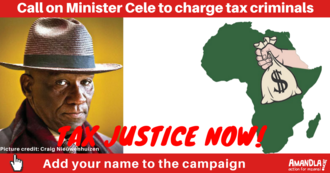.png)
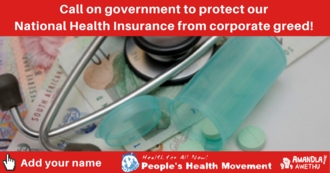
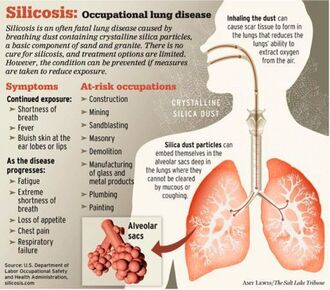

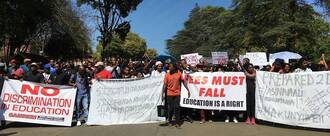
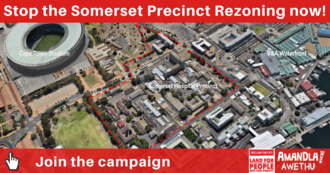.png)

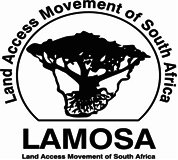


.jpg)